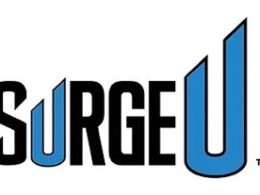It is never too late in life to make a change. With more training opportunities and the ability to learn and adapt throughout your life, know that you can make a career shift. You may be young; you may be old, but no matter what, you owe it to yourself to do the best for yourself. If doing the best means changing careers, then you need to take that leap.
Some are not passionate about their career but are happy enough with it anyways. They are comfortable with what they do and how much they make. Staying just because you are comfortable isn’t a bad thing. In fact, it can give you the mental time and energy to pursue what you do care about between working hours.
It’s when your job is taking a toll on your health and well-being that it becomes a problem. If being bored means becoming stressed, it’s time to make a change. In some cases, all you need is a change of scenery. Instead of changing careers, it’s a better idea to just change jobs.
You don’t need to be burning out to consider a career change, either. Your priorities might have changed, or you may recently have been inspired. If you were always interested in medicine but didn’t want to commit to being a doctor, then you may later in life realize that there are nursing roles that fit exactly what you want out of your career. You may have been inspired by the nurses who recently took care of you or a loved one. You may have been a stay-at-home parent that wants to shift your career focus to helping others.
There are so many reasons to change careers, particularly in a thriving option like nursing. There are shortages of nurses, yes, but this means that the chances of getting a job, and getting one quickly, are higher than ever. You can work to suit your needs as well. Work full-time, work part-time or work as a travel nurse and take up shifts as you want.
There are so many benefits of starting a second career in nursing, and this guide will help you understand exactly what you need to do to get started.
Signs It’s Time to Commit to Your Second-Career Aspirations
There are a few key signs that it is time to take the plunge and transition to a second career:
· Ongoing Stress or Burnout
If you are stressed, burned out, or bored to the point of frustration, then these are all key signs of changing careers. It may be to your creative passion, or it may be to a role that offers unique challenges every day, like nursing. Either way, know that it isn’t sustainable to work in those conditions, and you owe it to yourself to find a new route that helps you feel good at work and at home.
· You Aren’t Passionate About the Sector
While you don’t always have to be passionate about what you do, you should at least find it interesting and see yourself working in different roles. If you can’t, then it’s probably time to make a change. You should be invested in the industry as a whole. After all, you will continue to learn about it and change with it.
· You Actively Dream About a Different Career
If you’re actively dreaming about a different career, then it’s important to take the leap. This is particularly true if you dream of working as a nurse, no matter the specific role. With high wages, a shortage, and a larger-than-average expected growth rate, the opportunities are looking up. Add in investments in Telehealth and an increasing reliance on APRNs to cover the physician shortage, and you have many unique, empowering opportunities ahead of you.
How to Speed Up Your Transition into Nursing
Though you will need to obtain a degree or, at the very least, a certificate in order to start working as a nurse, know that there are many routes available to help you speed up the transition. As this is your second career, you will likely want to jump right into becoming an RN. There is no reason to work toward becoming a Certified Nurse Assistant or a Licensed Nurse Practitioner. You cannot work your way up the career ladder the same way you would in other industries. This means you can’t get started as a CNA and then, after a few years, be promoted to RN. Instead, you will need to earn an ADN or BSN. These degree options can be earned at any time.
They can also be fast-tracked.
The Accelerated Bachelor of Science in Nursing
The best option for those who already hold a degree (particularly if the said degree is in a STEM subject) is to earn an ABSN. These degrees can help you earn your BSN in just 16 months, which is an incredibly fast turnaround to becoming an RN.
The reason why this degree option is so fast to complete is that you are transferring prerequisite credits you should already have. It is also full-time. This means that you won’t be able to work while you study, but when you can change careers in less than two years and get started in a role like an RN, the payoff is definitely worth it.
You can even take a hybrid option, like this Rockhurst University Online ABSN program. What this means is that the coursework itself is entirely online, so you can save by living at home. There will also be one 10-day on-campus residency and, of course, the clinical placement in your area.
Though it can be intense, it is the best way to kickstart your career.
The Part-Time Approach
If you need to continue to work and don’t mind the education portion of your career change taking longer, then you can take on a BSN part-time. These are also usually online, with clinical placement near you. They are designed for those currently working, but the trade-off is that they take far longer to complete than a full-time BSN and, of course, the accelerated BSN.
If you need to continue to work for stability or for legal reasons, however, then this can be a good alternative – you just need to be patient and stay consistent with your education.
Furthering Your Education
The reason why you will want to earn a BSN instead of an ADN (even though an ADN takes half the time a full BSN does) is that it prepares you to advance your career further. You will need to earn a BSN at one point or another if you want to enroll in an MSN program.
Why commit to further education? For the options. Not only can you specialize in an area of medicine that you are most interested in, but you will also start earning well. Just have a look at the average median salary for certain roles in your area to get a good idea of what salary range you are looking at.
You can work to become a nurse practitioner that deals directly with patients, or you can work in a specialized area of medicine as a clinical nurse specialist. With additional training, you can also work towards becoming a Clinical Registered Nurse Anesthetist (CRNA) or a nurse midwife. Both of these additional options will require more training than NP or CNS roles, but they tend to be worth it.
What You Need to Get Started Today
If this career track sounds like a great idea and something that would fit you like a glove, then get started today. There are so many different degrees out there that you will be able to find the option that suits you.
In order to make the best choice in terms of how you approach your BSN consider your finances, your responsibilities, and what you need legally to continue to get the benefits you have. For example, if you are in a situation that means you need to continue to be employed, then you may want to take on a part-time degree option.
On the other hand, if you live with your parents or are currently a stay-at-home parent, then you should take advantage of the opportunity to take on a full-time, if not accelerated, online degree.
No matter what option or degree suits you best, you should always get in touch with the admissions board so that you can outline your situation and any specific needs. Universities are here to help you, and if that means helping you with a disability or with a living situation, you may be surprised at what they can offer.
They may help by directing you to the financing options or may set up a system so that you can better accommodate your dyslexia, for example. You will never know until you get in touch. The entire country wants you to succeed, after all, no matter what the route you take looks like.









